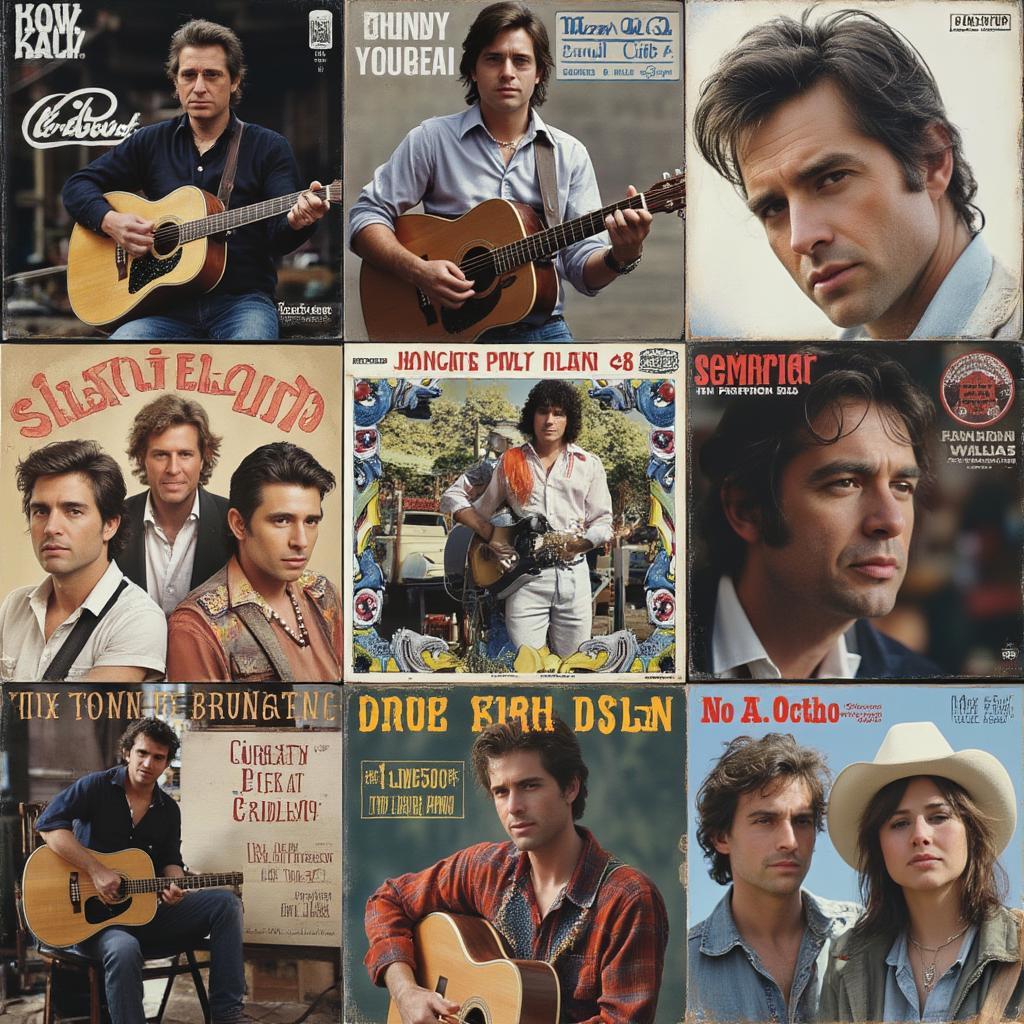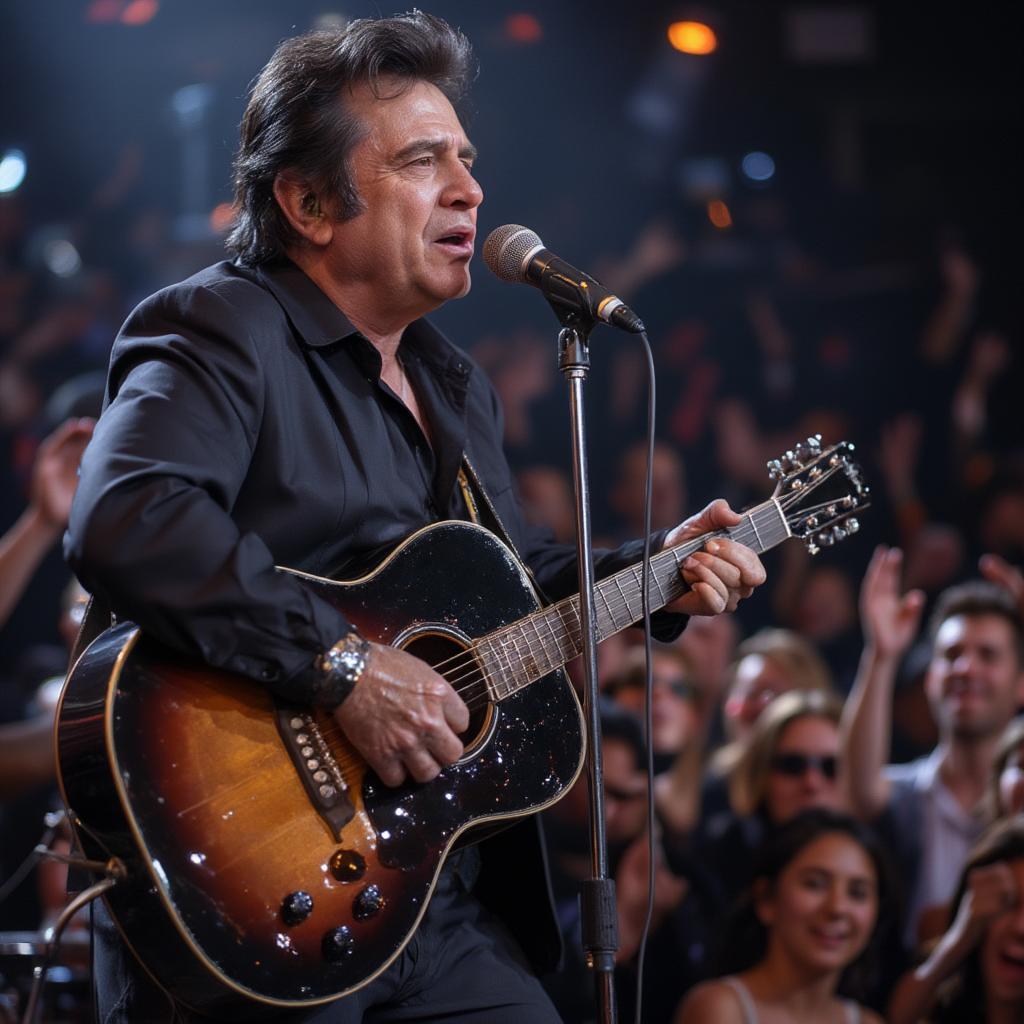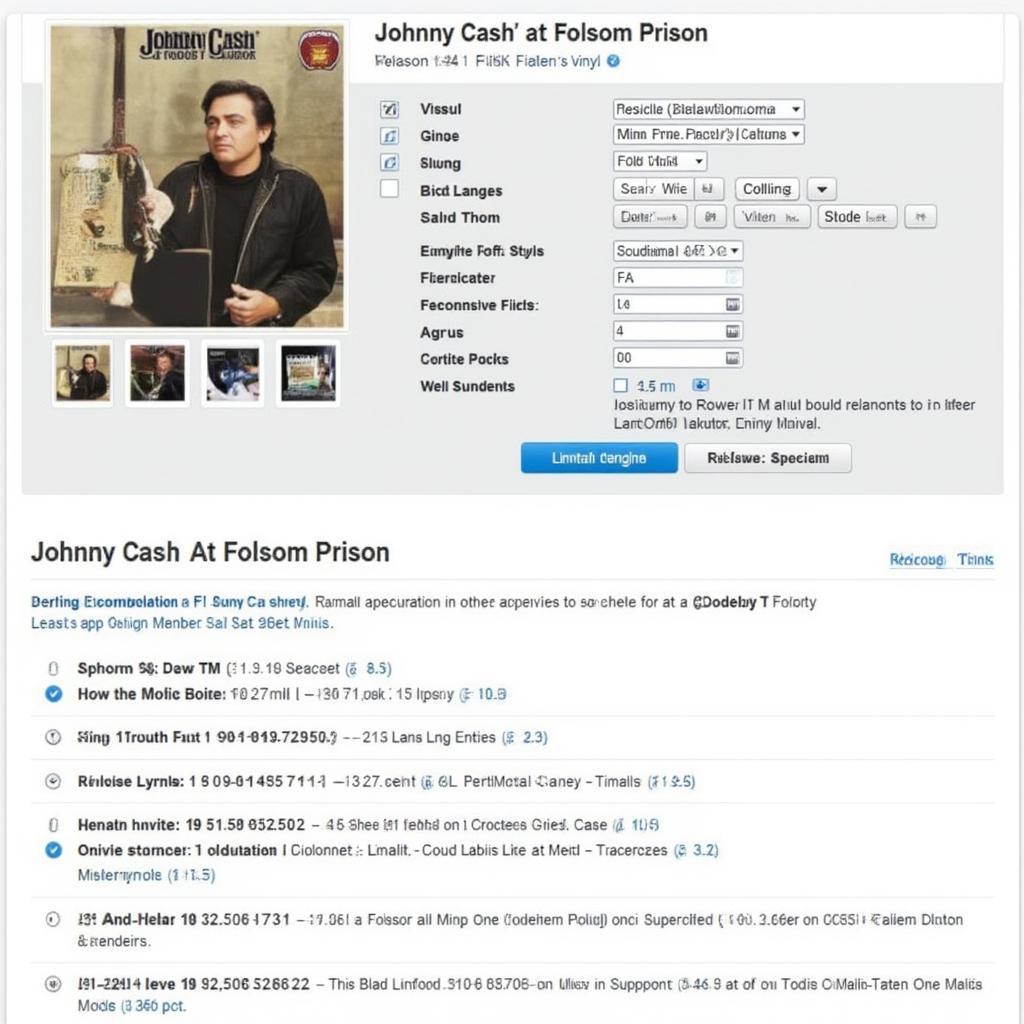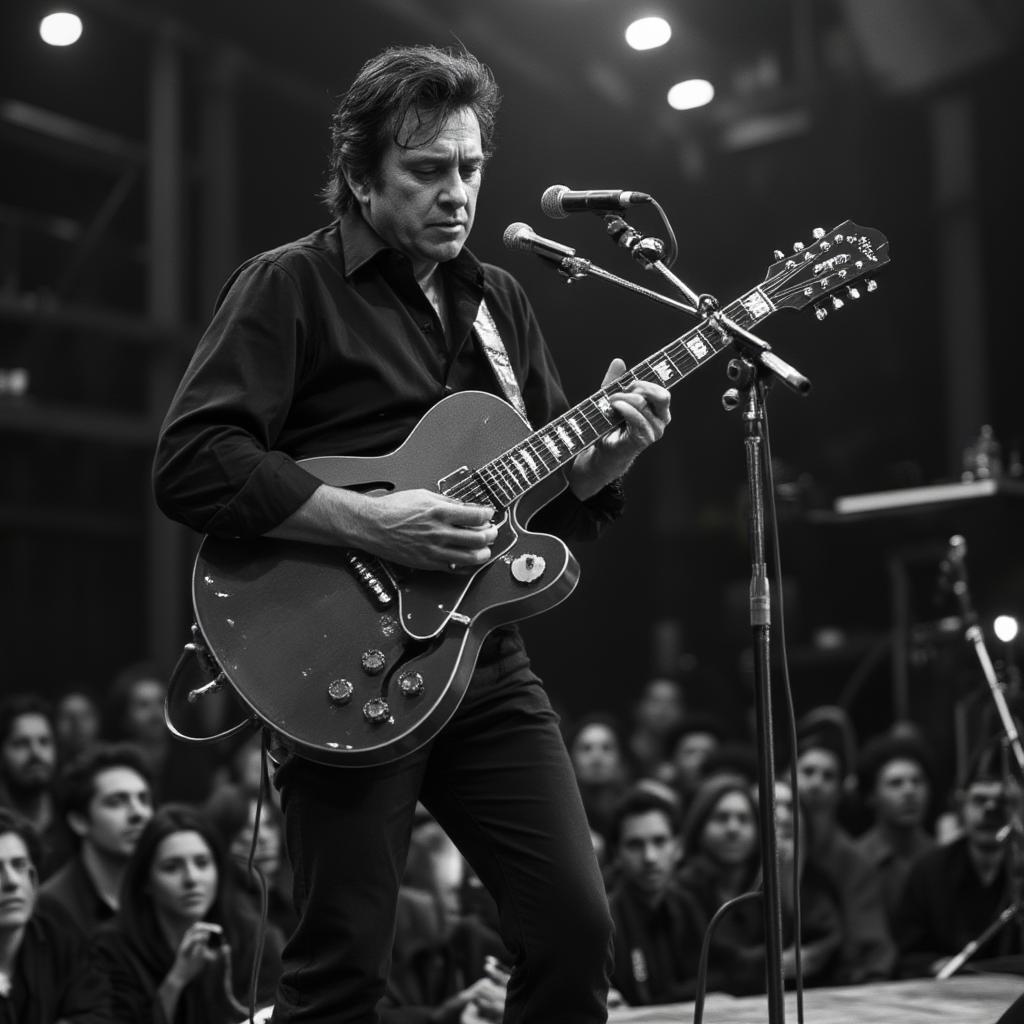About Johnny Cash: The Man, The Music, The Legend

Johnny Cash, a name synonymous with American country music, remains an iconic figure decades after his passing. More than just a singer, he was a storyteller, a rebel, and a voice for the downtrodden. This article delves into the life and career of Johnny Cash, exploring his musical journey, his struggles, and his enduring legacy.
Born J.R. Cash on February 26, 1932, in Kingsland, Arkansas, his early life was shaped by hardship and the gospel music of the Southern Baptist church. He began writing songs as a teenager, and his unique blend of country, rock and roll, blues, and gospel would later become his signature sound, earning him the moniker “The Man in Black.”
Johnny Cash’s Musical Journey: From Sun Records to Folsom Prison
Cash’s musical career took off in the 1950s when he signed with Sun Records alongside legends like Elvis Presley, Jerry Lee Lewis, and Carl Perkins. His early hits, including “Folsom Prison Blues,” “I Walk the Line,” and “Ring of Fire,” catapulted him to fame, establishing him as a force to be reckoned with in the music industry. Cash’s music resonated with a wide audience, addressing themes of love, loss, faith, and social justice. He sang about prisoners, working-class struggles, and the human condition with raw honesty and emotion, connecting with listeners on a deep level. His rebellious spirit and authenticity set him apart from his contemporaries. He was a true original who defied categorization. You might find similarities to this spirit in articles like cash the legend.
The “Man in Black”: A Symbol of Rebellion and Empathy
Johnny Cash’s signature all-black attire became more than just a fashion statement; it evolved into a powerful symbol. He wore black in solidarity with the poor, the imprisoned, and the voiceless. His song “Man in Black” explicitly stated his reasons: he wore black for the prisoner who has long paid for his crime, for the poor and beaten down living in the hopeless night. He became a voice for the marginalized, advocating for prison reform and social change through his music and activism. His willingness to perform at prisons, famously documented in the live album “At Folsom Prison,” solidified his image as a champion of the underdog. If you are interested in Johnny Cash’s time behind bars, check out johnny cash in jail.
Johnny Cash’s Later Years: American Recordings and Enduring Legacy
Despite battling personal demons and health issues, Cash continued to create music throughout his life. His later work with producer Rick Rubin, known as the “American Recordings,” stripped away the elaborate production and focused on the raw essence of Cash’s voice and storytelling. These albums, featuring stark arrangements and covers of songs by diverse artists, introduced Cash to a new generation of fans. They showcased his enduring talent and timeless appeal. The stark simplicity of these recordings mirrored the authenticity he embodied throughout his career.
Who are some artists influenced by Johnny Cash?
Countless artists across various genres have cited Johnny Cash as a major influence. From country stars like Willie Nelson and Waylon Jennings to rock musicians like Bob Dylan and Bruce Springsteen, Cash’s impact on music is undeniable. For more on this topic, you can read about bruce springsteen johnny cash. His music continues to inspire and resonate with musicians and fans around the world. He remains a touchstone for authenticity and artistic integrity.

“Johnny Cash was more than just a musician; he was a cultural icon whose music transcended genres and generations. His authenticity and commitment to social justice continue to inspire artists today,” says Dr. Emily Carter, a music historian and author of “The Sound of Rebellion: Johnny Cash and the American Spirit.”
Johnny Cash: A Timeless Icon
Johnny Cash’s life and music continue to captivate audiences worldwide. His songs remain relevant, his story continues to inspire, and his legacy as a musical icon is firmly cemented. He was a man of contradictions: a devout Christian who struggled with addiction, a rebel who championed the underdog, a simple man who became a legend. His complexity and authenticity are what make him so enduring. For a lighter look at the Man in Black, consider checking out a johnny cash bobblehead.

In conclusion, Johnny Cash was much more than a country singer. He was a storyteller, a social commentator, and a true American original. His music and his life continue to resonate with people of all ages and backgrounds, making him a timeless icon. To truly understand the depth and breadth of his impact, one must delve into the life and times of the “Man in Black.”
Frequently Asked Questions About Johnny Cash
- When was Johnny Cash born? February 26, 1932.
- Where was Johnny Cash born? Kingsland, Arkansas.
- What was Johnny Cash’s real name? J.R. Cash.
- Why was Johnny Cash called the “Man in Black”? He wore black in solidarity with the poor, the imprisoned, and the voiceless.
- What was Johnny Cash’s first hit song? “Cry! Cry! Cry!” was his first charting single.
- What prison did Johnny Cash famously perform at? Folsom State Prison and San Quentin State Prison.
- Who was June Carter Cash? Johnny Cash’s wife, a singer-songwriter, and member of the Carter Family. They had a deep personal and professional relationship. She was a significant influence in his life.
- When did Johnny Cash die? September 12, 2003.
- What genre of music did Johnny Cash sing? A blend of country, rock and roll, blues, and gospel, often referred to as “country rock” or “Americana.” A song like johnny 99 johnny cash exemplifies this unique blend.




